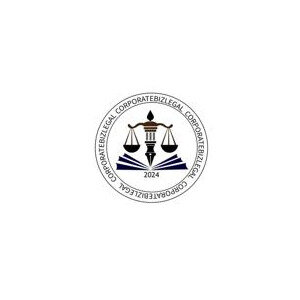Best Debt Capital Markets Lawyers in Nepal
Share your needs with us, get contacted by law firms.
Free. Takes 2 min.
Or refine your search by selecting a city:
List of the best lawyers in Nepal
About Debt Capital Markets Law in Nepal
Debt Capital Markets (DCM) in Nepal refer to financial markets where organizations, companies, and even the government can raise funds by issuing fixed income securities like bonds and debentures. The goal is to raise capital in exchange for a promise to repay the investors, often with interest, over a defined period. Nepal Rastra Bank (NRB), the Securities Board of Nepal (SEBON), and Nepal Stock Exchange (NEPSE) are the main regulators in this sector. Over recent years, the DCM landscape in Nepal has grown, with more local and international investors showing interest in Nepali bonds and debenture instruments.
Why You May Need a Lawyer
Navigating Debt Capital Markets can be complex, especially with regulatory frameworks, compliance needs, and the technicalities associated with issuing, subscribing, and trading securities. Some common reasons you may require legal help include:
- Advising on the issuance of corporate bonds or debentures
- Ensuring compliance with SEBON, NRB, and NEPSE requirements
- Structuring and negotiating agreements for syndicated loans or secured debentures
- Dealing with cross-border investment issues
- Drafting offer documents, prospectuses, and other disclosure documents
- Addressing disputes between issuers and investors
- Handling defaults, restructuring, or early redemption events
- Guiding foreign companies or non-resident investors through Nepali regulations
- Ensuring tax efficiency and compliance for capital market transactions
Local Laws Overview
The legal environment for debt capital markets in Nepal is primarily regulated by a set of key laws, institutions, and guidelines. Understanding these is critical for both issuers and investors:
- Securities Act, 2063 (2007): Governs the issuance, trading, and regulation of securities including bonds and debentures. SEBON is the main oversight authority.
- Companies Act, 2063 (2006): Sets out the framework for corporate entities issuing debt instruments.
- Bank and Financial Institution Act, 2073 (2017): Regulates banks and financial institutions, often frequent issuers of fixed income instruments.
- Nepal Rastra Bank Act, 2058 (2002): NRB issues government bonds and regulates monetary policy affecting DCM activities.
- SEBON Guidelines: Specific directives related to the issuance process, disclosure requirements, investor protection, credit rating requirements, and secondary market trading are key.
- Issuance of bonds and debentures requires SEBON approval and filings, prospectus registration, and periodic reporting.
- There are restrictions on the types of entities eligible to issue debt instruments and the classes of investors that can participate.
- The laws define the role of trustees, registrars, and credit rating agencies to protect investors.
- Taxation of interest income, capital gains, and withholding must be considered during structuring.
Frequently Asked Questions
What are Debt Capital Markets instruments in Nepal?
Debt Capital Markets instruments in Nepal mainly include government bonds, corporate bonds, and debentures. These are fixed income securities issued by government entities, banks, or large corporations.
Who regulates debt capital markets in Nepal?
The Securities Board of Nepal (SEBON) is the primary regulator. Other key bodies include Nepal Rastra Bank for government instruments and monetary policies, and Nepal Stock Exchange for secondary market trading.
Can foreign investors participate in the Nepali debt market?
Yes, but foreign investment is subject to restrictions and certain approvals. Foreign investors must comply with Nepal Rastra Bank and SEBON guidelines for participation.
What is the process for issuing a new bond or debenture in Nepal?
Issuers must prepare a detailed prospectus, obtain SEBON approval, undergo mandatory credit rating (as required), and complete filings with other authorities before launch and listing.
Are there credit rating requirements for debt securities?
Yes, SEBON rules require that most public debt issuers obtain a credit rating from an authorized credit rating agency to ensure transparency and investor protection.
How are investor interests protected in Nepal’s debt markets?
Investor interests are protected through mandatory disclosures, the requirement of trustees for debenture holders, regulated agreements, and SEBON's monitoring and supervision.
What happens in case of a default on a bond or debenture?
If an issuer defaults, trustees represent the investors' interests in recovery or restructuring. SEBON and the courts may intervene depending on the situation.
Is it possible to trade bonds or debentures in the secondary market?
Yes, listed bonds and debentures can be bought and sold on the Nepal Stock Exchange according to market rules and regulations.
What documents are needed to invest in or issue a debt security?
Documentation varies by investor or issuer, but generally includes registration documents, identification, KYC forms, board resolutions, prospectus, and compliance certificates.
How is interest income from debt instruments taxed in Nepal?
Interest income is subject to withholding tax at prescribed rates. Investors should also be aware of capital gains tax on the sale of securities, as per the prevailing tax laws.
Additional Resources
For more information or official guidance, the following authorities and organizations are helpful:
- Securities Board of Nepal (SEBON): Regulator for the securities market, including bonds and debentures.
- Nepal Rastra Bank (NRB): Central bank responsible for government debt issuance and monetary policy.
- Nepal Stock Exchange (NEPSE): Platform for trading securities, including bonds and debentures.
- Authorized Credit Rating Agencies: Agencies registered with SEBON for credit assessment of issuers.
- Ministry of Finance: Policy-maker involved in government securities and overall DCM regulation.
- Legal Firms with Capital Markets Practice: Several local legal firms offer specialized services in DCM law.
- Professional Advisors: Chartered accountants and tax advisors can help with compliance and structuring.
Next Steps
If you need legal assistance in the area of Debt Capital Markets in Nepal, consider the following steps:
- Clearly define your objective - whether you are seeking to issue, invest in, or trade debt securities.
- Gather all relevant information and documentation related to your case or query.
- Consult with a qualified legal expert or law firm experienced in DCM and securities law in Nepal.
- Confirm the credentials and expertise of your legal advisor in capital markets law.
- Discuss potential regulatory clearances or compliance requirements in advance.
- Consider involving accountants and advisors for tax, due diligence, or regulatory filings.
- Stay updated with changes in laws through official notifications or professional advisors.
Reaching out to a professional early can help avoid costly mistakes, ensure regulatory compliance, and provide peace of mind as you engage with the debt capital markets in Nepal.
Lawzana helps you find the best lawyers and law firms in Nepal through a curated and pre-screened list of qualified legal professionals. Our platform offers rankings and detailed profiles of attorneys and law firms, allowing you to compare based on practice areas, including Debt Capital Markets, experience, and client feedback.
Each profile includes a description of the firm's areas of practice, client reviews, team members and partners, year of establishment, spoken languages, office locations, contact information, social media presence, and any published articles or resources. Most firms on our platform speak English and are experienced in both local and international legal matters.
Get a quote from top-rated law firms in Nepal — quickly, securely, and without unnecessary hassle.
Disclaimer:
The information provided on this page is for general informational purposes only and does not constitute legal advice. While we strive to ensure the accuracy and relevance of the content, legal information may change over time, and interpretations of the law can vary. You should always consult with a qualified legal professional for advice specific to your situation.
We disclaim all liability for actions taken or not taken based on the content of this page. If you believe any information is incorrect or outdated, please contact us, and we will review and update it where appropriate.
Browse debt capital markets law firms by city in Nepal
Refine your search by selecting a city.

















